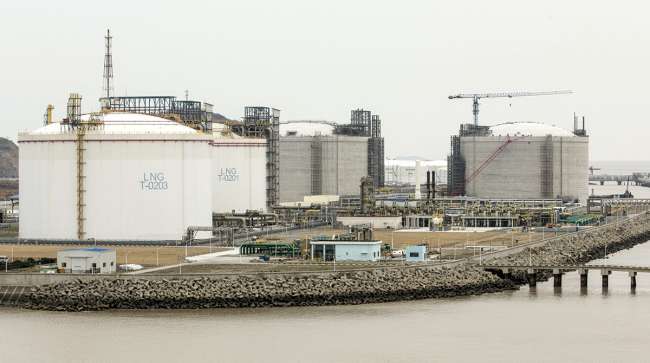Bloomberg News
Chinese Tariffs on US LNG Set to Reroute Global Trade Flows

[Stay on top of transportation news: Get TTNews in your inbox.]
China’s decision to slap retaliatory tariffs on liquefied natural gas imported from the U.S. will trigger a scramble to decouple the world’s biggest buyer and seller of the super-chilled fuel.
Beijing announced 15% levies on American gas just moments after President Donald Trump imposed a tariff on goods from Beijing. China imported about 6% of its LNG from the U.S. last year.
The move will likely push Chinese buyers holding long-term contracts with U.S. projects to resell their shipments to importers elsewhere. The country’s LNG importers have already been offloading a large chunk of their U.S. volumes to other markets, like Europe, where prices are more attractive.
Already, Chinese LNG buyers are inquiring with counterparts in Asia and Europe about swapping additional U.S. shipments for cargoes from elsewhere, according to traders who asked not to be identified because they’re not authorized to speak to media.
The disruption to trade flows “may push prices higher everywhere on the margin,” said Saul Kavonic, an energy analyst at MST Marquee. “The tariffs will create material market inefficiencies, which will benefit some LNG traders in the regions.”
Want more news? Listen to today's daily briefing above or go here for more info
Chinese firms are unlikely to sign new long-term contracts with proposed U.S. projects as long as trade tensions remain high. This is bad news for those American exporters that need to lock in buyers before securing necessary financing to begin construction.
Trump, preoccupied with the U.S.’ steep trade deficits with several countries, has been clear about his intention to use the nation’s energy-superpower status to balance the equation. His threats have prompted some buyers, like India and Japan, to hold talks about procuring more U.S. gas, while pushing Chinese firms away.
Beijing has targeted American LNG before, adding tariffs on U.S. imports in 2018 during Trump’s first presidency.




